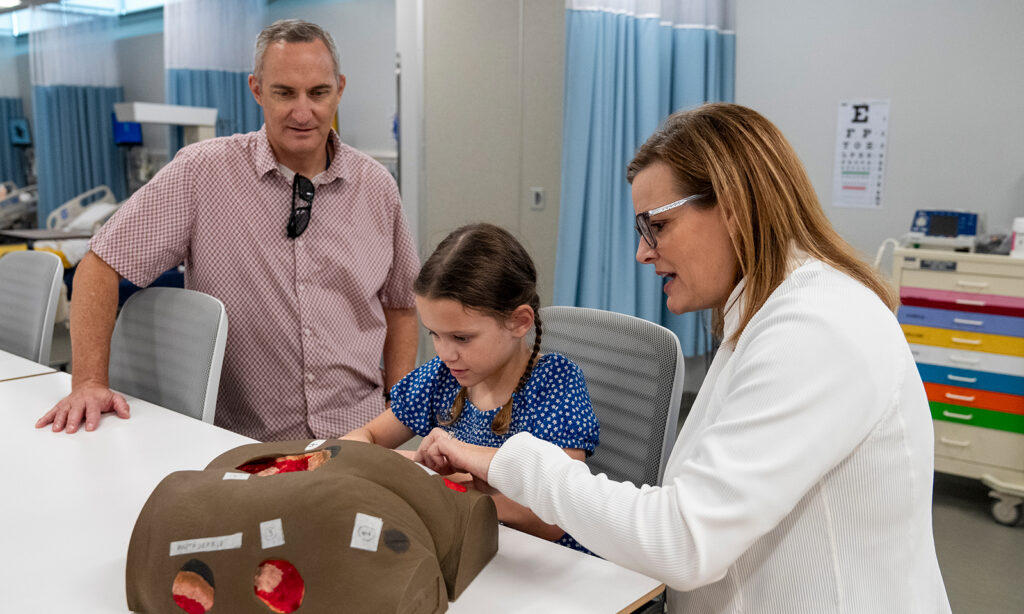At UC Irvine’s summer nurse camp, high school students learn CPR, work with mentors and get hands-on exposure to a vital job that needs more applicants.
“We want to make sure that teens who decide to go into the nursing profession know what it is, so they’ll stay,” says nursing professor Leanne Burke, the program’s director. “We want more of them, and we also want them to be prepared for what the job entails, going in with their eyes open.”
The prescription seems to be working. The first of two one-week sessions in July quickly filled its 32 spots, with late-comers joining a waitlist. UCI faculty and nurses volunteer to teach the sessions, running from 9 a.m. to 4 p.m. on campus at the Sue & Bill Gross School of Nursing at UCI.
“I’ve had an interest in nursing for a while now, and I actually completed a certified nurse assistant course and got my certification,” says Carol Chiang, a senior at Portola High School. “That furthered my interest, so I wanted to do something here at the camp.”
Vital recruiting
It’s no secret that America needs more nurses. Federal authorities project a shortage of nearly 79,000 full-time registered nurses in 2025, according to the National Center for Health Workforce Analysis. California is one of the 10 states with the largest projected shortage.
UCI’s nurse camp began in 2017 but paused during the pandemic, resuming last year. In 2025, faculty hope to expand the program to include middle schoolers.
“Early exposure can make a big difference in whether a student seeks a career in nursing,” Burke says.
“I always thought being a nurse would be cool,” says Northwood High student Abby Kim. “This camp has made me realize that nursing is something I could pursue. I got to work with a needle for the first time. At first it was scary, but afterward I got the hang of it.”
Hands-on learning
Hands-on activities make the lessons entertaining and practical. Chocolate-syrup squirts are part of an exercise teaching students to efficiently don their personal protective equipment (PPE) – the masks, goggles and gloves that guard them from contagion. “After they’re covered with syrup they have to take off the PPE in the right order to be sure not to get any of the syrup on their skin,” Burke explains.
“I learned how to do CPR,” says Aisha Saeed, a Portola High student. “I got to talk to a lot of mentors and learn about different specialties, which was really helpful. I now really want to be an ER nurse after going to this camp. We got to learn how to package wounds, and that was my favorite part.”
Students practice giving shots to hot dogs, chosen for their similarity to human skin. They don Vaseline-smeared glasses and place cotton in their ears to simulate the sensory losses that come with advancing age – an exercise in empathy. They also learn to wash their hands after touching a substance that glows blue under ultraviolet light if it isn’t rinsed off.
“We’re constantly trying to reinforce what they learn in ways that are fun for them,” Burke says. “We’re also giving them practical skills that they can use even if they never become nurses.”





